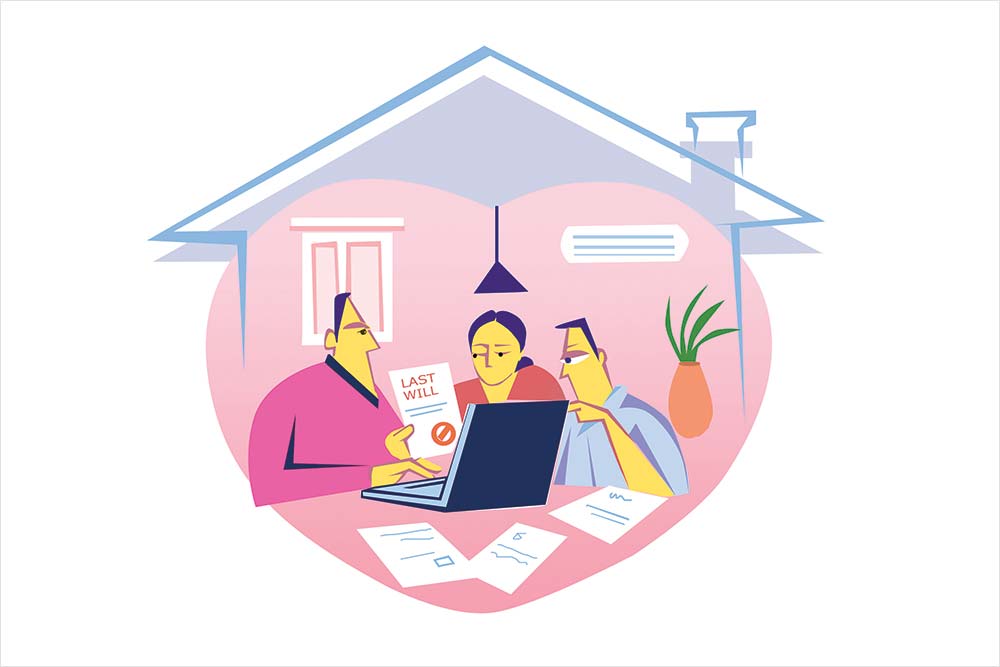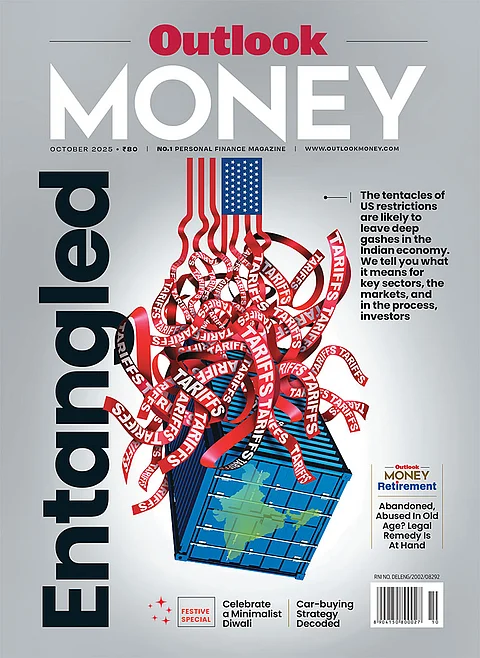Shelling from across the border has been an unusual routine for the last two decades in the life of Lt Col (Retd) Vivek Sharma. There was nothing more indefinite about life than the definite possibility of falling dead – at least till the retired armyman encountered something that took the world by surprise last year. A year and nearly 35 lakh deaths later, the Covid-19 pandemic has redefined uncertainty in an altogether different way to the world, stoking fear and striking alarm bells.
The damage has not been confined to the loss of lives and livelihoods alone, the collateral damage has been colossal, inflicting countless households. Most relatives of over 3 lakh Covid victims in India found themselves completely in the lurch after the main earning members of the families passed away suddenly. Even before the pain of the loss could sink in, a staggering financial crisis stared at them, and most couldn’t find a way out of the wreck because they were never part of the fiscal planning of the breadwinner.
Ignorance is not always bliss, indeed. Jolted awake by the reality, Lt Col (Retd) Sharma called a meeting of his family members on a Sunday afternoon. The retired couple were settled in Chandigarh, while their two daughters were working from Bengaluru and Hyderabad. He sat down with a sheaf of documents, comprising all his bank account details, insurance policies, investments and properties.
He shared every single detail of his assets with the family members. Over the next few days, he settled all issues over nominees for bank accounts, lockers and other investments, and distributed his properties with complete clarity between his wife and the daughters.
“I had a huge sigh of relief once the exercise was done. Even if anything untoward happens now, there is a mental peace. They know what is there for them,” says Lt Col (Retd) Sharma.
The faster people start thinking like the veteran soldier, the safer would be our loved ones. Financial experts believe that if you are working and have a source of income, then you should sit with your parents, spouse and kids and whoever is there in your family and discuss finances with them before it is too late.
If you are salaried, you need to disclose about bank accounts, savings, investments, assets, property, life insurance policies, UAN (Universal Account Number) for Provident Fund withdrawal and so on along with the contact number of the HR head in your company. This can be listed either in a diary or in notes or as a will – whatever you prefer. Also, do disclose about your loans and debts so that your family members stay aware of the liabilities they may have to encounter.
“Most of my clients are couples or people who are going through changes in life. Because my specialisation is couple, both husband and wife are involved in the financial planning process. When we are reviewing their investment accounts both the husband and the wife are involved, they both are aware that I am managing their investment portfolio and financial planning for the family. They both have copies of all the investments and they come jointly for the review discussions,” says financial advisor Amit Kukreja. “Therefore, in terms of financial visibility and data, it is with both of them.”
Clients who are going through changes in life are put under the process of identifying the important people who would be aware of their assets if anything happens to them.
“For individual investors investing with me, I tell them about the importance of disclosure to their spouses. It’s not confined to Covid-19 pandemic only, but even in general, I suggest my clients to make these disclosures to their families or spouses,” says Kukreja. It is, however, beyond his reach to find out if his suggestions are followed in letter and spirit.
A senior executive from Motilal Oswal says that most of his clients introduce him to their families, including children, so that he could help them through the financial transition in case of an unfortunate incidence. “I suggest my clients, especially since last year, to talk about every investment and credit to be sourced and debt or liabilities to be served, with their families so that they are mentally prepared,” says the executive, opting anonymity.
He suggests that kids are grown up enough to be taught and shared financial details – at least some basic information – in case of an emergency. “Almost every day, there are reports of young couples dying with their children left at the mercy of their relatives. It is imperative for us to keep our children informed so that they do not feel obliged in such a scenario,” he says.
The making of a will, too, has come up as an essential measure for every earning individual. Financial planners are facing an increasing number of cases where elderly couples succumb to the infection without any proper distribution of their assets among the children. The concept of will is still in its nascent stage in India with a meagre 4-5 per cent people going for will making and only 5-6 per cent going forward with registration of will in the sub-registrar’s office, according to legal experts.

“Indian laws for will are very simple. You can write a will on a white sheet, include whatever you want to distribute among your family members and get it signed by two witnesses. It is admissible in the court of law. You don’t need any stamp paper or lawyer for it,” points out Jatin Popat, a Mumbai-based lawyer and founder of Willjini.
Popat suggest that if you are above 40 years of age, you should write a will and keep updating it every two years. Will in the pandemic days is as important as medical insurance in this uncertain time.
Willjini provides legal guidance and tools to prepare a will. It offers three types of will. The express will costs around Rs 1,500 plus GST. It is a short, summarised will, which only talks about the type of assets and can be prepared in 10-15 minute. The online standard will costs Rs 4,000 plus GST. It carries details of every type of asset and takes around an hour to be prepared. A customised will costs Rs 10,000 and, in case anyone wants to register the will, it costs an additional Rs 5,000, including sub-registrar fees. Popat says that all wills made by lawyers are under confidentiality agreement.
There are several will formats available online. You can refer to websites like Willjini, Wonder.Legal, legaldesk.com, ezeewill.com and lawrato.com as per your convenience. The charges vary from Rs 1,000 to Rs 15,000, depending on services and your needs.
In the last five years, the trend of using online platforms for writing wills is getting traction in India. Financial institutions like HDFC and ICICI are now foraying into partnerships with these websites, suggesting their clients to go for the legal framework to secure the disclosure of assessments for their family members through wills.
The legislations in India do not recognise the concept of digital will or any other form of testamentary disposition by electronic means. Therefore, your signatures in ink or physical signatures along with those of the two witnesses are very important for the validity of a will.
Lt Col (Retd) Sharma, too, had a will in place. But, looking at the turn of events, he felt that it would be safer to disclose everything than keep things under wraps. A will is welcome but the disclosure of details is mandatory, for the sake of our loved ones.
***
Family Disclosure List
- Bank Accounts and nominees
- Bank lockers
- Life insurance/Term insurance policies and nominees
- Mutual Funds, SIPs and other investments and nominees
- UAN number of your provident fund account
- Tax payments
- Loans and personal debts from family and friends
- Office HR number
***
Jyotika@outlookindia.com







